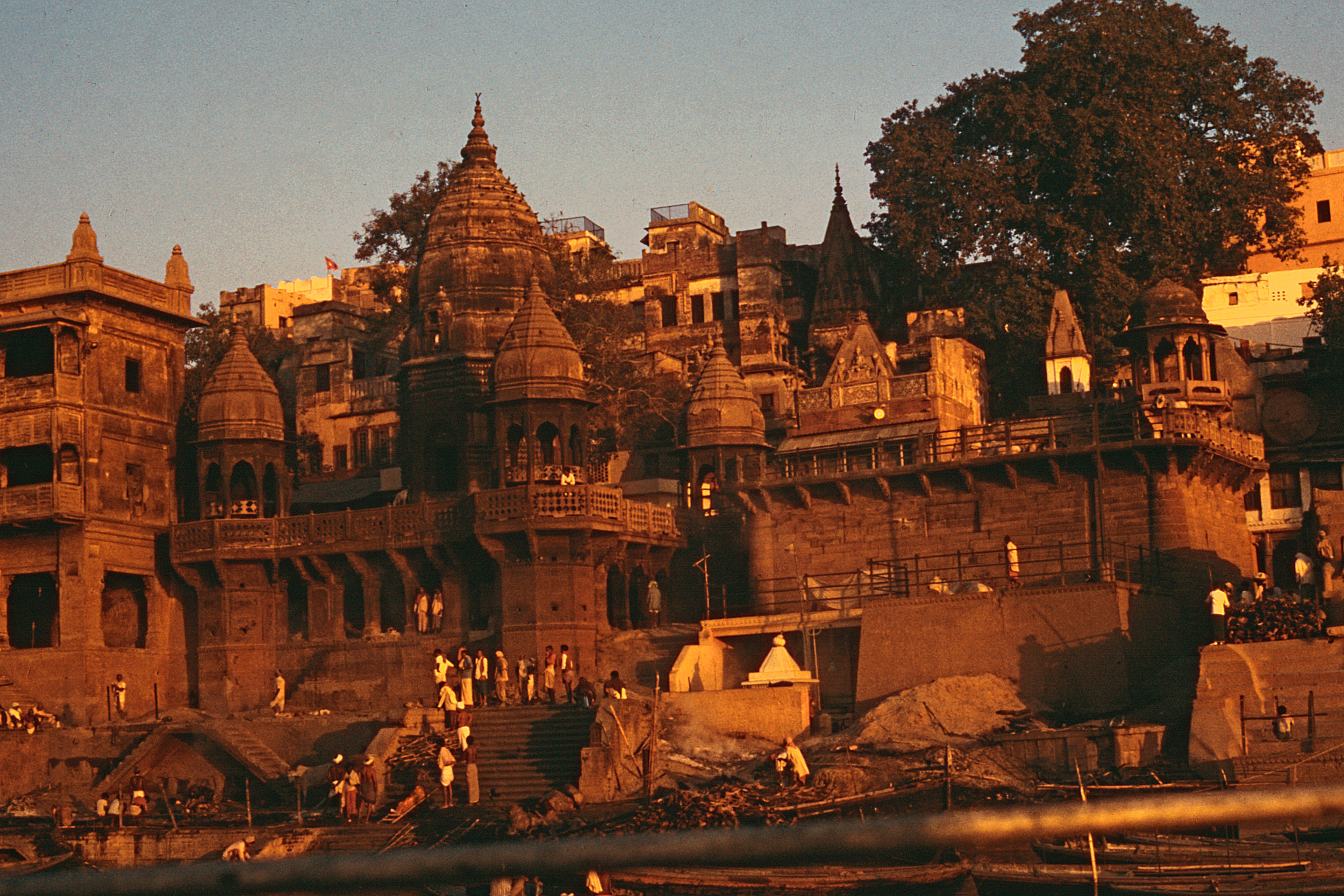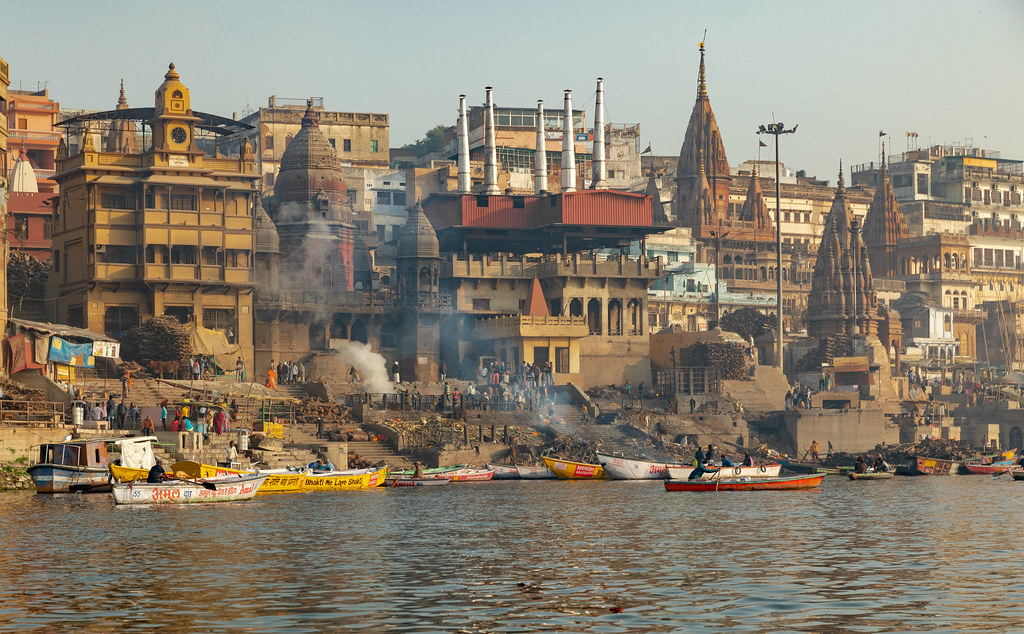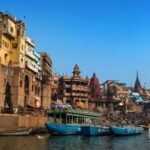Varanasi, a city steeped in spiritual richness, stands proudly on the banks of the revered Ganges in Uttar Pradesh, India. This ancient city has served as a spiritual epicenter for Hindus for centuries, boasting centuries-old temples dedicated to various deities. Varanasi isn’t merely a city; it’s a cultural and intellectual hub that has nurtured poets, philosophers, and musicians, shaping India’s cultural tapestry.

Among Varanasi’s sacred landmarks, Manikarnika Ghat emerges as a poignant symbol of life and death. Positioned alongside the iconic Kashi Vishwanath Temple, this ghat is more than a cremation site; it’s a portal where souls embark on their journey beyond. The stone stairs, dating back to 1303 and reconstructed by Bajirao Peshva in 1730, add historical significance to this revered location.
Manikarnika Ghat is more than a physical space; it’s a spiritual realm where the rituals of cremation unfold. Hindus believe that performing the last rites here can bestow Moksha, liberating the departed souls from the cycle of rebirth. As you ascend the steps, history echoes through the Gupta monument from the 5th century, and the aura of devotion is palpable.
Adjacent to Manikarnika Ghat lies the Scindia Ghat and the famous Dashashwamedh Ghat, forming a sacred trifecta along the Ganges. The ghat’s restoration by Ahilyabai Holkar in 1791 attests to its enduring significance in Hindu culture. A holy pond named Cakra-Pushkarini Kund, also known as the Manikarnika Kund, adds another layer to the spiritual narrative. Legend has it that Lord Vishnu himself excavated this pond, predating the flow of the Ganges.

For travel enthusiasts with Varanasi on their bucket list, a visit to the Manikarnika Ghat is a must. It’s not just a place; it’s a convergence of history, spirituality, and a profound connection to the cycle of life and death. As you stand on the ancient stones of Manikarnika Ghat, you become part of a narrative that transcends time, inviting you to contemplate the profound mysteries of existence in this sacred city by the Ganges.







